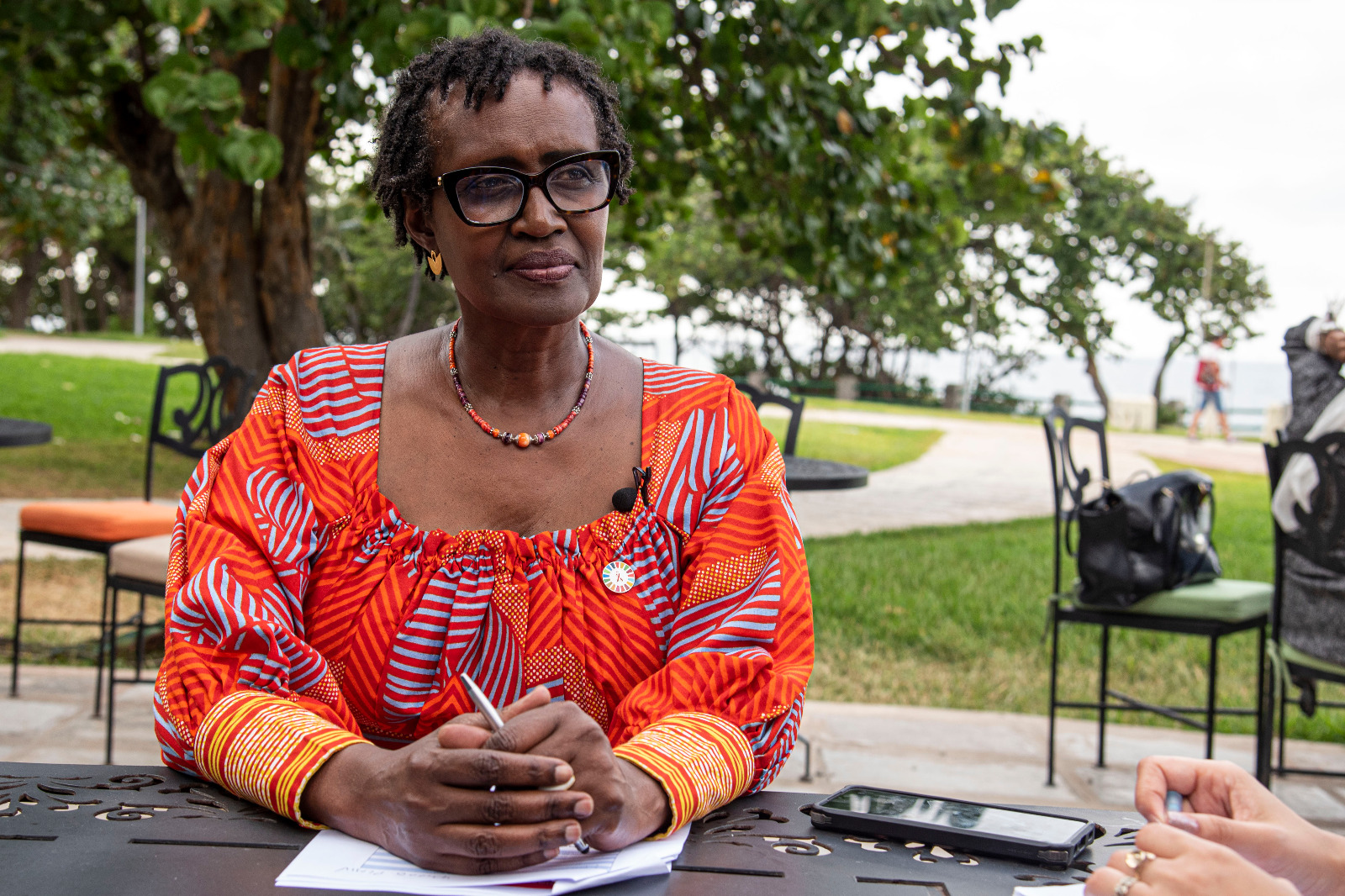By Martha Isabel Andrés
In an exclusive interview with Prensa Latina during a visit to Havana, the head of the Joint United Nations Program on HIV/AIDS highlighted Cuba’s achievements in the fight against this pandemic, including having been the first country in the world to receive validation for eliminating mother-child transmission.
However, despite these results, she expressed that the response to HIV is based on healthcare systems, which is why she estimated that Cuba’s greatest lesson for other developing nations is to invest in people, in their health and education.
Byanyima, who visited institutions like the Abelardo Ramírez Teaching Polyclinic, the Pedro Kourí Tropical Medicine Institute (IPK) and the Center for Genetic Engineering and Biotechnology (CIGB), underscored that Cuba made and continues to make strong investments in the people’s health and education, as well as in prevention and treatment.
If you sell health as if it were fashionable clothing, for example, you cannot end a pandemic, because the pandemic feeds on the weakest areas of society, those who cannot afford treatments. So we have a free and strong healthcare system here, the head of UNAIDS remarked, and regretted that other countries allocate fewer resources to the health sector.
In addition, she pointed out that Cuba also provides solidarity by sending its doctors and nurses to fight diseases in more than 50 nations on the planet, a lesson that Cuba “can teach to rich countries, many of which are weakening their help, and to other middle-income States that can do more to tackle HIV/AIDS.”
She also noted that Cuba can help in the area of human rights, since its Constitution and laws include equality among all and do not discriminate against based on sexual orientation or identity, while in dozens of countries this is a big barrier and cannot reach people because there are laws that criminalize it.
According to Byanyima, who met with the President Miguel Díaz Canel on Monday, Cuba can also lead and help in offering technology to the rest of the world, because it has made achievements in innovation and research in the several fields of health and in the development of medicines, as proved by its own vaccines against Covid-19.
In that regard, she expressed interest in supporting Cuba to disseminate its potential and have more South-South collaboration that brings capital, “because it can gain from the transfer of technology to other developing countries” and “it is in a position to support capacity building in such regions as Africa and Asia.”
At the same time, the UNAIDS executive director noted that she has lessons to learn to advance the goal of ensuring that AIDS stops being a public health threat by 2030.
In particular, she mentioned the importance of communities being used more and leading the response to the pandemic. We have seen in many countries that when young people work with people of the same age or LGBTQ people with members of that same group, that strategy leaves no one behind, so Cuba could do more to reach a larger number of people through the work with these vulnerable groups, she noted.
Byanyima also noted that Cuba is affected by economic limitations that lead to shortages of resources such as condoms, and are a major challenge that could be solved “if external restrictions were removed.”
In this regard, she stated that she had seen the damage that the embargo (economic, commercial and financial blockade imposed by the United States more than six decades ago) causes in Cuba’s response to HIV/AIDS, when there is the will to promote the confrontation with the disease and what is missing is the necessary money.
Regarding the purposes of her stay in Havana from May 6 to 9, she explained that she had come to learn about Cuba and explore opportunities for South-South collaboration.
“There are many African countries that are making partnerships to build their pharmaceutical technology capabilities and I want to explore how we can support Cuba to be a partner for these territories.”
I also want to learn how to support the country in ending its fight against HIV, because I know it is facing serious economic challenges, and I see an opportunity for us to advocate for Cuba in HIV funding circles to acquire some products like condoms, and I will take the message to my colleagues, the global fund and bilateral donors, she stated.
jg/mem/sea










